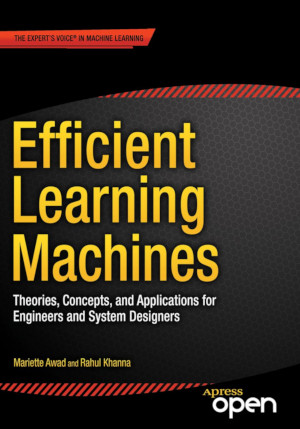Efficient Learning Machines
Theories, Concepts, and Applications for Engineers and System Designers
by Mariette Awad, Rahul Khanna
DescriptionTable of ContentsDetailsHashtagsReport an issue
Mariette Awad and Rahul Khanna's synthetic approach weaves together the theoretical exposition, design principles, and practical applications of efficient machine learning. Their experiential emphasis, expressed in their close analysis of sample algorithms throughout the book, aims to equip engineers, students of engineering, and system designers to design and create new and more efficient machine learning systems. Readers of Efficient Learning Machines will learn how to recognize and analyze the problems that machine learning technology can solve for them, how to implement and deploy standard solutions to sample problems, and how to design new systems and solutions.
Advances in computing performance, storage, memory, unstructured information retrieval, and cloud computing have coevolved with a new generation of machine learning paradigms and big data analytics, which the authors present in the conceptual context of their traditional precursors. Awad and Khanna explore current developments in the deep learning techniques of deep neural networks, hierarchical temporal memory, and cortical algorithms.
Nature suggests sophisticated learning techniques that deploy simple rules to generate highly intelligent and organized behaviors with adaptive, evolutionary, and distributed properties. The authors examine the most popular biologically-inspired algorithms, together with a sample application to distributed datacenter management. They also discuss machine learning techniques for addressing problems of multi-objective optimization in which solutions in real-world systems are constrained and evaluated based on how well they perform with respect to multiple objectives in aggregate. Two chapters on support vector machines and their extensions focus on recent improvements to the classification and regression techniques at the core of machine learning. 






Book Description
Machine learning techniques provide cost-effective alternatives to traditional methods for extracting underlying relationships between information and data and for predicting future events by processing existing information to train models. Efficient Learning Machines explores the major topics of machine learning, including knowledge discovery, classifications, genetic algorithms, neural networking, kernel methods, and biologically-inspired techniques.Mariette Awad and Rahul Khanna's synthetic approach weaves together the theoretical exposition, design principles, and practical applications of efficient machine learning. Their experiential emphasis, expressed in their close analysis of sample algorithms throughout the book, aims to equip engineers, students of engineering, and system designers to design and create new and more efficient machine learning systems. Readers of Efficient Learning Machines will learn how to recognize and analyze the problems that machine learning technology can solve for them, how to implement and deploy standard solutions to sample problems, and how to design new systems and solutions.
Advances in computing performance, storage, memory, unstructured information retrieval, and cloud computing have coevolved with a new generation of machine learning paradigms and big data analytics, which the authors present in the conceptual context of their traditional precursors. Awad and Khanna explore current developments in the deep learning techniques of deep neural networks, hierarchical temporal memory, and cortical algorithms.
Nature suggests sophisticated learning techniques that deploy simple rules to generate highly intelligent and organized behaviors with adaptive, evolutionary, and distributed properties. The authors examine the most popular biologically-inspired algorithms, together with a sample application to distributed datacenter management. They also discuss machine learning techniques for addressing problems of multi-objective optimization in which solutions in real-world systems are constrained and evaluated based on how well they perform with respect to multiple objectives in aggregate. Two chapters on support vector machines and their extensions focus on recent improvements to the classification and regression techniques at the core of machine learning.
This open book is licensed under a Creative Commons License (CC BY-NC-ND). You can download Efficient Learning Machines ebook for free in PDF format (8.2 MB).
Table of Contents
About the Authors
About the Technical Reviewers
Acknowledgments
Chapter 1
Machine Learning
Chapter 2
Machine Learning and Knowledge Discovery
Chapter 3
Support Vector Machines for Classification
Chapter 4
Support Vector Regression
Chapter 5
Hidden Markov Model
Chapter 6
Bioinspired Computing: Swarm Intelligence
Chapter 7
Deep Neural Networks
Chapter 8
Cortical Algorithms
Chapter 9
Deep Learning
Chapter 10
Multiobjective Optimization
Chapter 11
Machine Learning in Action: Examples
Index
Book Details
Title
Efficient Learning Machines
Subject
Computer Science
Publisher
Apress
Published
2015
Pages
244
Edition
1
Language
English
ISBN13
9781430259893
ISBN10
1430259892
ISBN13 Digital
9781430259909
ISBN10 Digital
1430259906
PDF Size
8.2 MB
License

Related Books
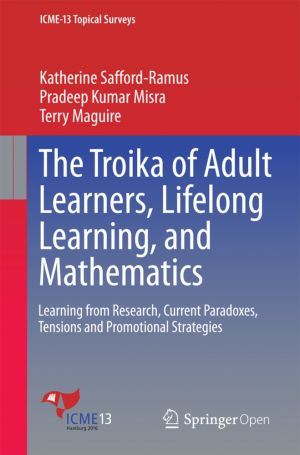
This book presents a synopsis of six emerging themes in adult mathematics/numeracy and a critical discussion of recent developments in terms of policies, provisions, and the emerging challenges, paradoxes and tensions. It also offers an extensive review of the literature adult mathematics education. Why do adults want to learn mathematics? Did they...
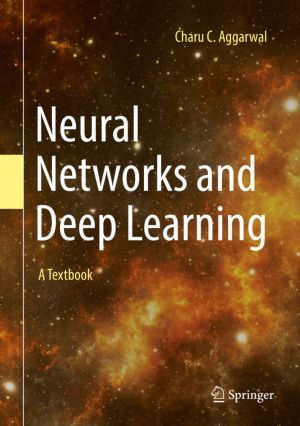
This book covers both classical and modern models in deep learning. The chapters of this book span three categories:
The basics of neural networks: Many traditional machine learning models can be understood as special cases of neural networks. An emphasis is placed in the first two chapters on understanding the relationship between traditional mac...
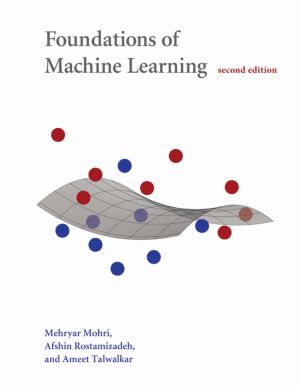
A new edition of a graduate-level machine learning textbook that focuses on the analysis and theory of algorithms.
This book is a general introduction to machine learning that can serve as a textbook for graduate students and a reference for researchers. It covers fundamental modern topics in machine learning while providing the theoretical basi...
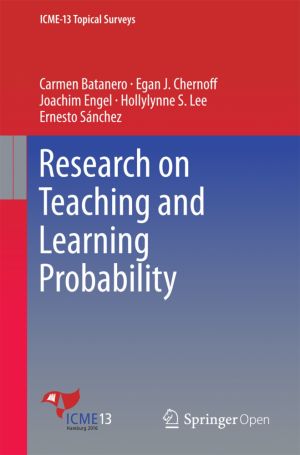
This book summarizes the vast amount of research related to teaching and learning probability that has been conducted for more than 50 years in a variety of disciplines. It begins with a synthesis of the most important probability interpretations throughout history: intuitive, classical, frequentist, subjective, logical propensity and axiomatic vie...

It argues that the main purpose of educational research is to improve student learning, and that international comparative studies are no exception....
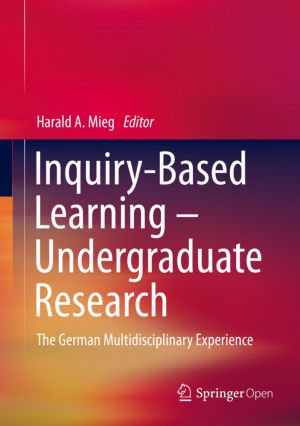
This book provides a systematic overview of experiences with Inquiry-Based Learning (IBL) and undergraduate research (UR) in German universities, covering both research universities (Universitäten) and universities of applied sciences (Fachhochschulen). Divided into three parts, the book starts with the principles and common practices of IBL/UR at...

